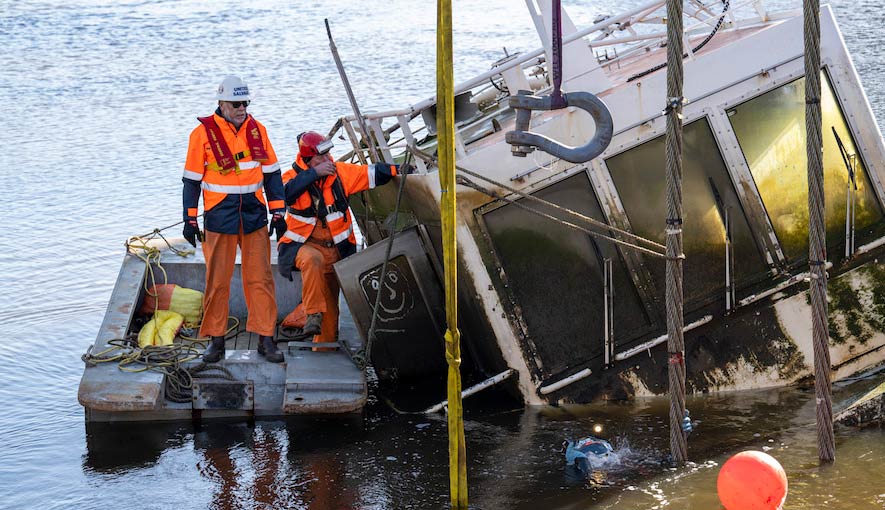THE WRECK of TasPorts tugboat Campbell Cove has been successfully removed from the Mersey River.
Once the tug is secured on heavy lift ship AAL Melbourne and the ship departs for Brisbane, TasPorts will then commence the process of restoring Port of Devonport to full service.
The lift was a milestone in a delicate salvage operation that has been progressing throughout the week, involving TasPorts, its insurer Shipowners and salvor United Salvage.
The tugboats sunk in late January after an allision with cement carrier Goliath.
York Cove, the first of the two sunken tugs to be pulled from the river in Port of Devonport, was removed on the weekend (7 August).
But the recovery of the second tugboat, Campbell Cove, proved particularly challenging because its unbalanced position on the river floor rendered the lift onto AAL Melbourne near impossible.
After an initial recovery attempt on Wednesday and a second attempt on Thursday, TasPorts chief operating officer Stephen Casey has confirmed the salvage operation is now complete.
The vessel was dewatered into the containment area, which can now be skimmed of any diesel or oil that drains from the wreck.
“Work is now underway to finalise the safe landing of the Campbell Cove into the cradles on board the AAL Melbourne in preparation for a sea voyage to Brisbane,” Mr Casey said.
“Once there, the two wrecks will be taken to a salvage yard dedicated to scrapping maritime assets.”
Following AAL Melbourne’s departure, the incident site will undergo marine safety inspection and assessment to ascertain potential damage to the wharf.
The process of returning the port to full service can then begin.
Mr Casey said the protection of the environment and the integrity of the oil spill response boom around the wreck site has been a key focus for TasPorts throughout the salvage effort.
“An update on the Wildlife Response team check of little penguin colonies late Wednesday night saw no sign of oil within the colonies at Don Heads Lillico.”
“Around 30 penguins were seen under spotlight, and all were behaving normally and had no signs of oiling.”





